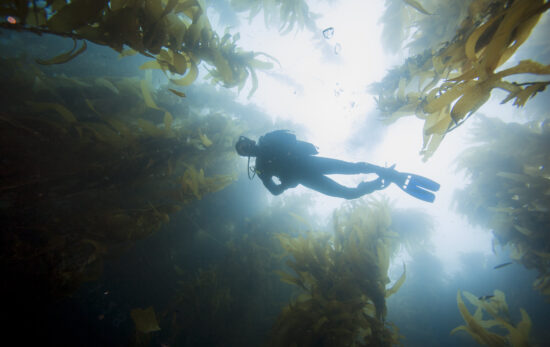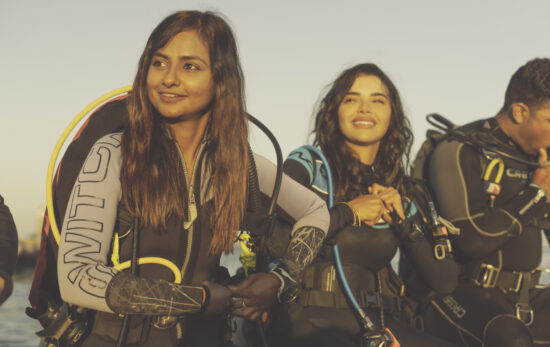The water is a place where many people go to seek connection and healing. For some, the water’s healing power is immeasurable. For example, when Fraser Bathgate, PADI’s Global Advisor Adaptive Techniques, became paralyzed in a climbing accident, it took him six years to discover scuba diving as a source of refuge and freedom. Soon after, Bathgate became the first paraplegic PADI instructor in 1994. Ever since, he’s been a pioneer in making adaptive sports more accessible for people with disabilities.
In more recent years, scuba diving has gained a lot of attention as an adaptive sport. In fact, major institutions are backing research to understand the inordinately positive impacts of scuba diving. That said, there are also other adaptive ocean sports that should not be overlooked. In this article, we’ll explore how the healing power of water can provide the best adaptive sports for people with disabilities.
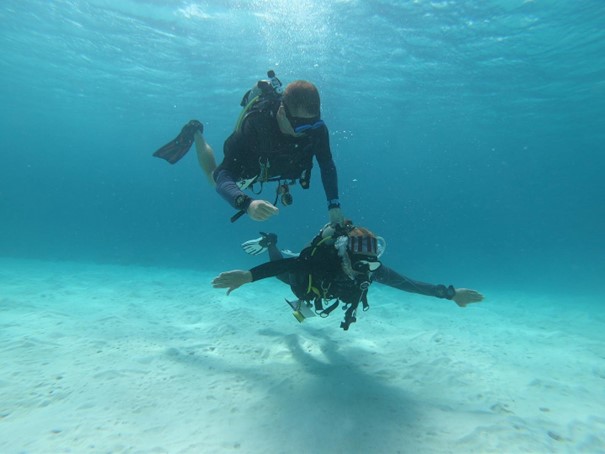
1. Scuba Diving
Many of us have experienced the healing powers of water on a personal level. However, we are just starting to quantify the meditative effects of this space on our physical and mental health. For example, the “blue mind” phenomenon describes the physiological changes we experience around water. Our breathing slows, our stress levels decrease, and we enter a mildly meditative state of calm and connectivity. While we understand the symptoms of change in our bodies, we’re still exploring why they occur.
There are many people leading the initiative to quantify those reasons in order to effect change. PADI Ambassadiver Cody Unser became paralyzed from an autoimmune condition at a young age. Over the years, she has become a spirited ambassador for scuba diving in the disability community through the Cody Unser First Step Foundation. She has also spearheaded a collaborative initiative with Johns Hopkins researchers. The team are now doing groundbreaking research to understand how diving helps people with disabilities, particularly veterans and youth.
Overall, the landscape has changed a great deal since Bathgate became the first paraplegic PADI dive instructor. Bathgate says, “When I first started going to [dive shows], I was nearly the only person in a chair attending, but now you see all different abilities at the shows”.
Bathgate, who is the Global Advisor Adaptive Techniques for PADI, also plays a key role in developing PADI’s adaptive courses. He advocated for the PADI Adaptive Support Diver course, which trains divers to support dive buddies with disabilities. Bathgate explains, “I felt it was okay to have Instructors [with disabilities] trained, but each diver needs a buddy…Because PADI has been so inclusive over the years, we have multiple options for people with different abilities”.
Overall, Bathgate believes, “In my 30+ years of diving, it has been great to see the changes happen and open up. I am not saying it is 100% there, but it is getting very close to it!”
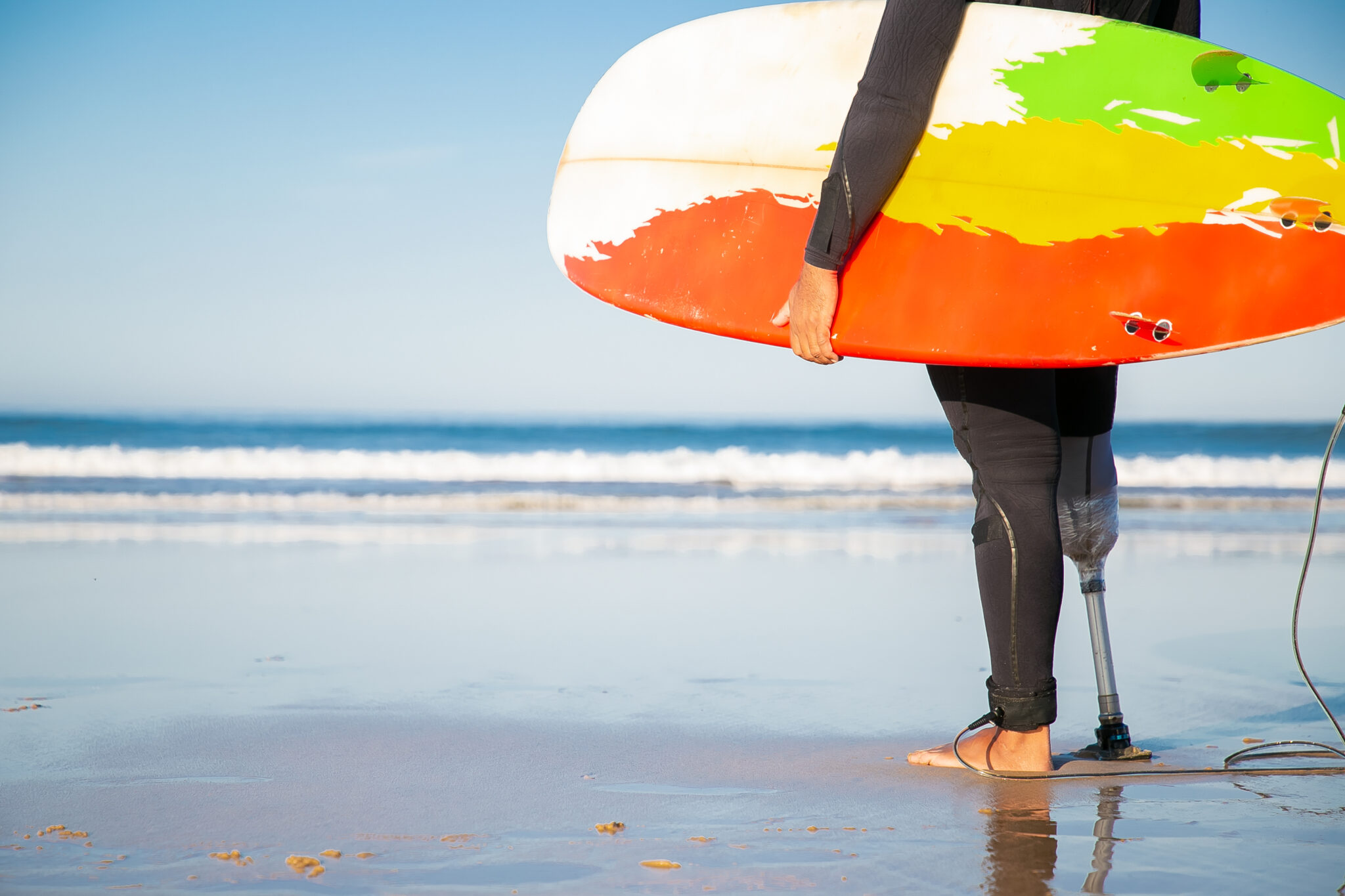
2. Surfing
Similar to diving, surfing provides an unparalleled sense of connection to the ocean. Thanks to a number of non-profits like A Walk on Water, adaptive surfing has evolved significantly in the past few years. Equipment like beach wheelchairs, paddles, and adaptive surfboards have become essential in helping people with disabilities harness the energy of a wave.
The happiness associated with surfing has also made an intangible but powerful impact on the neurodiverse community. For example, A Walk on Water provides surf therapy to young kids with autism, as well as kids with other special needs. As an immersive, empowering and engaging experience, surfing can be particularly impactful, as these kids experience the healing “blue mind” effect firsthand.
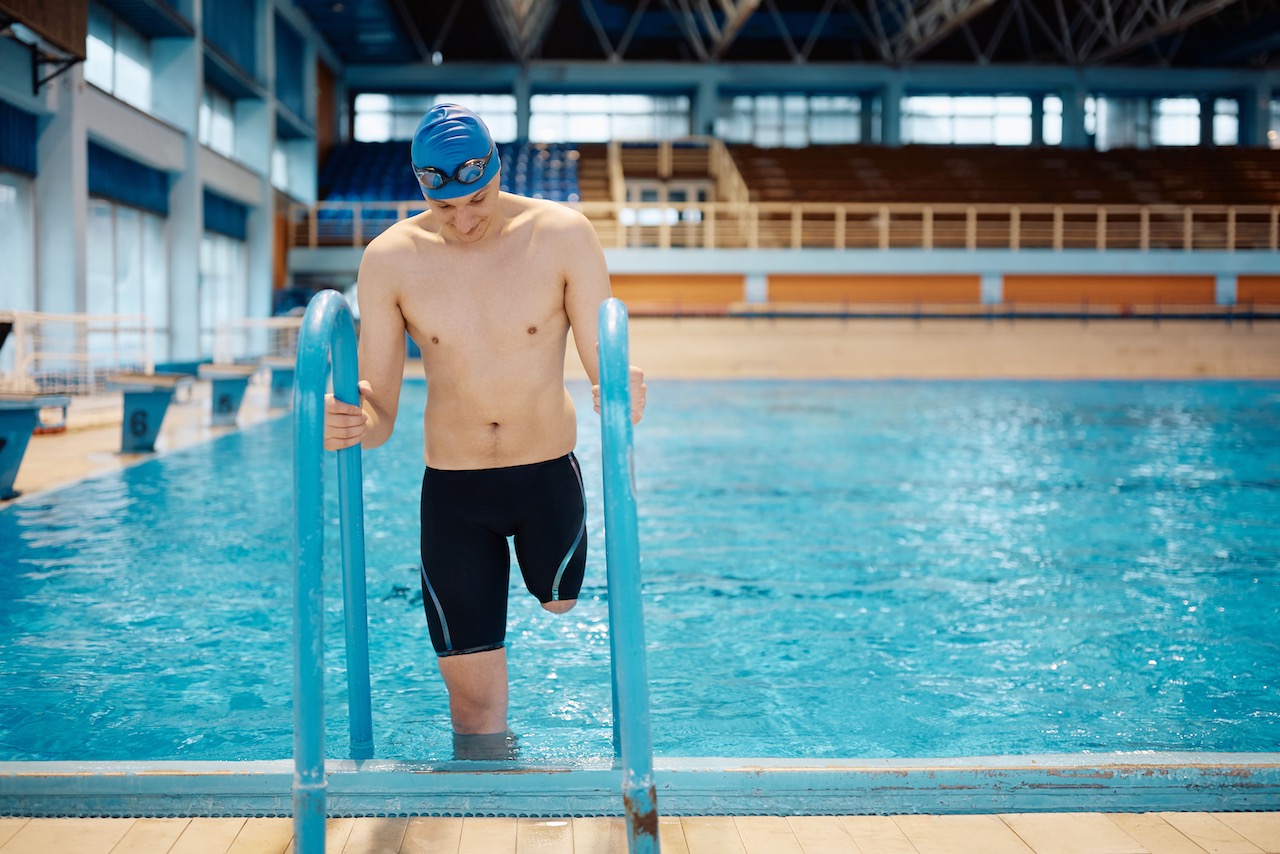
3. Swimming
Out of all these adaptive water sports, swimming has the lowest barrier to entry and requires no extra equipment. As a form of hydrotherapy, swimming is a very inclusive sport and can benefit people with a wide range of abilities. For one, submersion in the water can help alleviate pressure and pain from physical ailments. Additionally, swimming is hugely beneficial to muscle strengthening and cardiovascular health.
On top of that, swimming is also an official Paralympic sport. This provides a professional route for those who are naturally talented and have a competitive drive.
Regardless of your abilities, we can all experience the healing, connective power of the ocean. Learn to Live Unfiltered with us at PADI.

